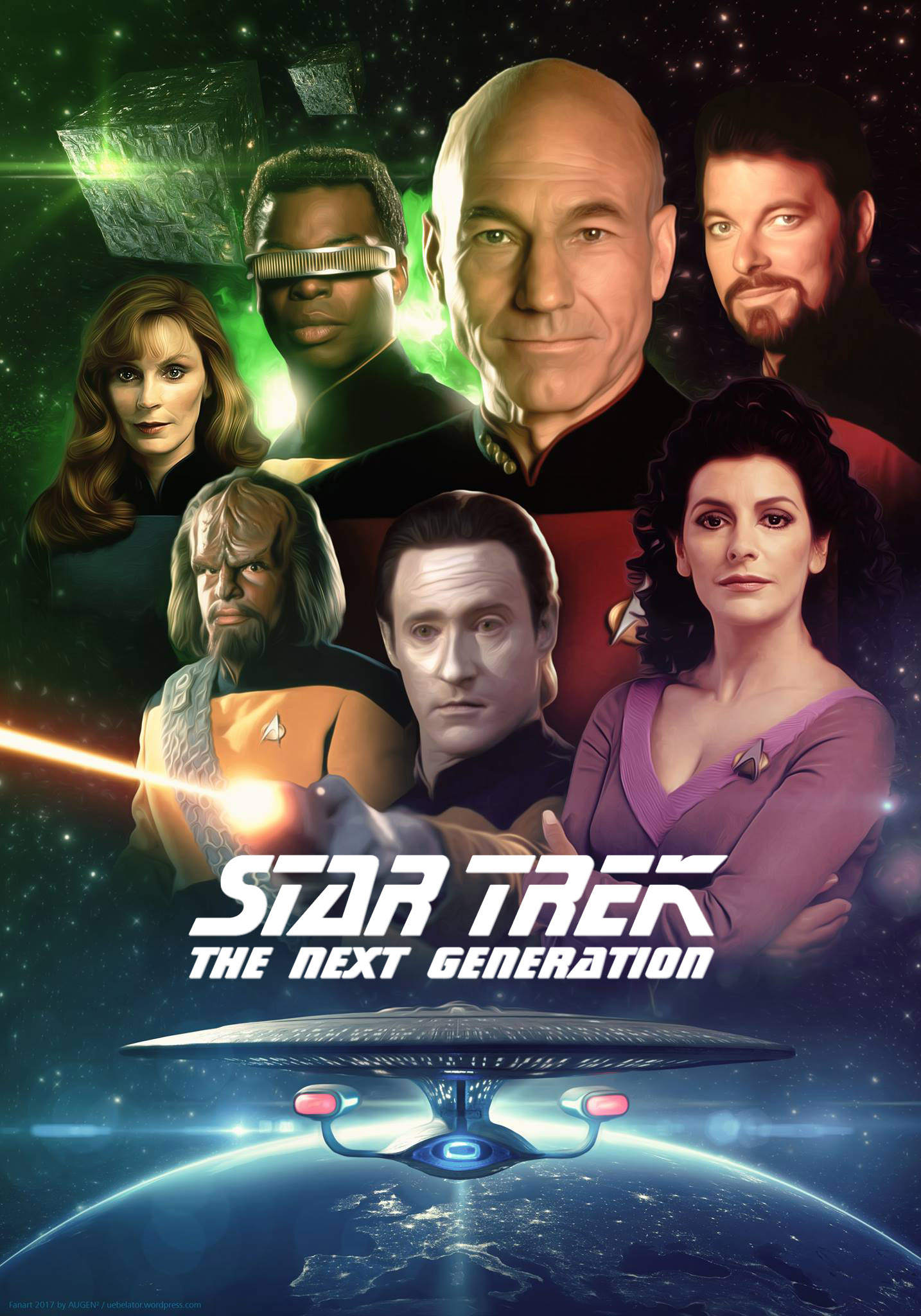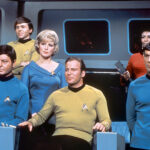
Star Trek: The Next Generation (TNG) is the second live-action television series in the Star Trek franchise, airing from 1987 to 1994. Set approximately 100 years after the events of the original series, TNG introduced a new generation of characters and expanded the Star Trek universe in exciting and innovative ways.
The series is set on the USS Enterprise-D, a Galaxy-class starship commanded by the wise and diplomatic Captain Jean-Luc Picard, portrayed by Patrick Stewart. Captain Picard is known for his intellectual prowess, moral integrity, and his love for archaeology and Shakespeare. Alongside him is a diverse crew, including the logical and half-human, half-Vulcan first officer Commander William Riker, played by Jonathan Frakes, and the android second officer Lieutenant Commander Data, portrayed by Brent Spiner, who seeks to understand and experience humanity.
TNG follows the crew’s mission of exploration and diplomacy as they navigate the vastness of space, encounter new alien species, and deal with complex moral and ethical dilemmas. The series presents a utopian vision of the future where the United Federation of Planets strives for peace, cooperation, and understanding among different civilizations.
One of the central themes in TNG is the concept of humanity’s evolution and progress. The crew of the Enterprise-D frequently confronts philosophical and ethical questions, challenging their own beliefs and pushing the boundaries of what it means to be human. The character of Data, with his quest to understand emotions and his desire to be more than just an android, provides a constant exploration of what it truly means to have a soul and be alive.
TNG also emphasizes the importance of teamwork and collaboration. The crew members of the Enterprise-D come from diverse backgrounds and cultures, bringing unique perspectives and skills to the table. The series showcases the power of unity and cooperation, highlighting the idea that working together toward a common goal can lead to remarkable achievements.
Throughout its run, TNG tackled a wide range of social and political issues, often allegorically reflecting contemporary concerns. The show addressed topics such as war, diplomacy, prejudice, gender equality, artificial intelligence, and the limits of power. It used science fiction as a platform to explore these issues and provoke thought and discussion.
The success of TNG led to the creation of additional Star Trek series and films, cementing its place as a significant and influential part of the franchise. Its seven-season run and strong storytelling laid the foundation for future installments while creating memorable characters and captivating narratives.
Star Trek: The Next Generation is celebrated for its optimistic view of the future, its thought-provoking storytelling, and its memorable characters. It continues to inspire generations of fans, encouraging them to embrace exploration, diversity, and the potential of humanity. The legacy of TNG remains an integral part of the rich tapestry that is the Star Trek universe.
![]()










Leave a Reply